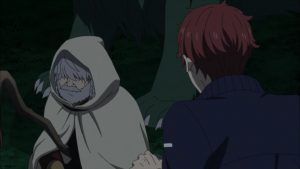 Last episodes of one-and-done shows can be a sad time, but there’s some good news with this one. Mayonaka no Occult Koumuin is going to have a two-episode OVA this fall (no word on whether it’s original material but with so much unadapted manga, that seems much more likely). I don’t know quite what to make of Mayonaka’s status, to be honest – it was never on any manga bestseller lists, and the animation budget is clearly minimal. But it managed a really big-name cast even for guest roles (including in the finale) and now gets a nice OVA announcement too.
Last episodes of one-and-done shows can be a sad time, but there’s some good news with this one. Mayonaka no Occult Koumuin is going to have a two-episode OVA this fall (no word on whether it’s original material but with so much unadapted manga, that seems much more likely). I don’t know quite what to make of Mayonaka’s status, to be honest – it was never on any manga bestseller lists, and the animation budget is clearly minimal. But it managed a really big-name cast even for guest roles (including in the finale) and now gets a nice OVA announcement too.
 Not that I’m complaining, obviously. Mayonaka was easily the biggest upside surprise of the spring for me, a show that wasn’t totally off my radar (I did preview it) but wasn’t one about which I had strong sleeper vibes going in. There were a lot of interesting thematic elements going on here, a bit of Natsume Yuujinchou, a pinch of Mushishi and a dash of American Gods among others, stitched together in a really interesting and entertaining way. While I didn’t necessarily agree with every narrative choice, there was a deceptive amount of ambition in the writing and that’s something I always appreciate.
Not that I’m complaining, obviously. Mayonaka was easily the biggest upside surprise of the spring for me, a show that wasn’t totally off my radar (I did preview it) but wasn’t one about which I had strong sleeper vibes going in. There were a lot of interesting thematic elements going on here, a bit of Natsume Yuujinchou, a pinch of Mushishi and a dash of American Gods among others, stitched together in a really interesting and entertaining way. While I didn’t necessarily agree with every narrative choice, there was a deceptive amount of ambition in the writing and that’s something I always appreciate.
 This finale was certainly the most Natsume Yuujinchou episode of the series for me – at least superficially. One could almost imagine the story of Volos (Ohtsuka Houchu, excellent as always) and Arata playing out in that series in fact, but with one large caveat. Natsume was focused entirely (that I remember) on Japanese mythology, and Volos is an ancient Slavic God. I very much like the fact that Mayonaka took a global view of magic and mysticism, and even managed to avoid doing so in an overtly Japan-centric way (which is pretty rare in anime).
This finale was certainly the most Natsume Yuujinchou episode of the series for me – at least superficially. One could almost imagine the story of Volos (Ohtsuka Houchu, excellent as always) and Arata playing out in that series in fact, but with one large caveat. Natsume was focused entirely (that I remember) on Japanese mythology, and Volos is an ancient Slavic God. I very much like the fact that Mayonaka took a global view of magic and mysticism, and even managed to avoid doing so in an overtly Japan-centric way (which is pretty rare in anime).
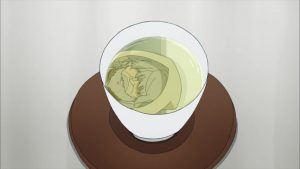 One thing that’s niggled at me is the way this series has hedged its bets with regards to Arata’s approach to his job – I would argue that it’s bent over backwards to show us both sides more than it really needed to. But with Volos’ story there’s really none of that – it’s a full-throated endorsement of Arata’s worldview, and clearly establishes him as a man of limitless empathy for other sentient beings. Volos is a rudderless Another, clearly a deity of some sort but with no memory of who he is or where he comes from. Arata takes it on himself to help Volos (whose name we won’t learn until the end of the episode) find his home, but Arata being who he is he takes things considerably beyond that.
One thing that’s niggled at me is the way this series has hedged its bets with regards to Arata’s approach to his job – I would argue that it’s bent over backwards to show us both sides more than it really needed to. But with Volos’ story there’s really none of that – it’s a full-throated endorsement of Arata’s worldview, and clearly establishes him as a man of limitless empathy for other sentient beings. Volos is a rudderless Another, clearly a deity of some sort but with no memory of who he is or where he comes from. Arata takes it on himself to help Volos (whose name we won’t learn until the end of the episode) find his home, but Arata being who he is he takes things considerably beyond that.
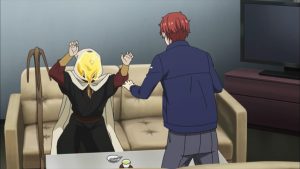 While Volos never shows hostility or ill-intent, taking care of him is undeniably a pain in the ass. But Arata doesn’t bat an eye at the inconvenience and what’s more, even when he learns that Volos’ presence is physically harming him he still refuses to stand down. “It’s my job” is a phrase Arata repeats many times during this story, and it’s clear that it’s a commitment he takes very seriously indeed. There was no threat to humanity if Arata hadn’t been around to shepherd Volos – he simply would have withered and died alone. But the fact that Arata’s dedication managed to prevent that is highly meaningful even it isn’t practically important – he performed an act of kindness for its own sake, and preserved the existence of an ancient and unique being in the process. And Kanoichi can stick that where the sun don’t shine.
While Volos never shows hostility or ill-intent, taking care of him is undeniably a pain in the ass. But Arata doesn’t bat an eye at the inconvenience and what’s more, even when he learns that Volos’ presence is physically harming him he still refuses to stand down. “It’s my job” is a phrase Arata repeats many times during this story, and it’s clear that it’s a commitment he takes very seriously indeed. There was no threat to humanity if Arata hadn’t been around to shepherd Volos – he simply would have withered and died alone. But the fact that Arata’s dedication managed to prevent that is highly meaningful even it isn’t practically important – he performed an act of kindness for its own sake, and preserved the existence of an ancient and unique being in the process. And Kanoichi can stick that where the sun don’t shine.
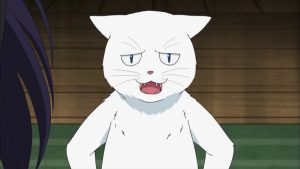 Eventually Arata does find Volos identity through a lucky break – some imported honey from the God’s homeland, which allows Seo to connect the dots. And through Senda-san’s suggestion of a visit to a Ukraine exhibit at the Tokyo National Museum, he finds a new home for the God – a statue in his likeness on loan to the museum. One supposes there aren’t many worshippers of a deity like Volos in this day and age – in that sense the old Gods are much better off in Japan than in Christian nations. But Volos gets a pretty good deal in the end, it seems to me, and as a hunting God he has the sense of adventure to relish the opportunity it presents him.
Eventually Arata does find Volos identity through a lucky break – some imported honey from the God’s homeland, which allows Seo to connect the dots. And through Senda-san’s suggestion of a visit to a Ukraine exhibit at the Tokyo National Museum, he finds a new home for the God – a statue in his likeness on loan to the museum. One supposes there aren’t many worshippers of a deity like Volos in this day and age – in that sense the old Gods are much better off in Japan than in Christian nations. But Volos gets a pretty good deal in the end, it seems to me, and as a hunting God he has the sense of adventure to relish the opportunity it presents him.
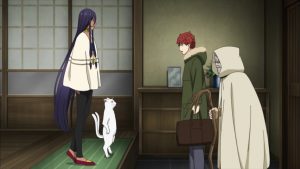 All in all this was a really nice way to end – for now – Mayonaka no Occult Koumuin. Ultimately for all its risks Arata’s way is the better way, and this episode feels like a validation of that. There aren’t a lot of commercially viable elements to this series, but it’s one of those adaptations where you feel really lucky to get one cour – it was probably intended mainly as a way to plug the manga, and I think it fulfilled that purpose very well. It’s a smart, subtle and really inventive series, all substance and no flash, and any anime season is always better if it’s lucky enough to have a couple of series like that.
All in all this was a really nice way to end – for now – Mayonaka no Occult Koumuin. Ultimately for all its risks Arata’s way is the better way, and this episode feels like a validation of that. There aren’t a lot of commercially viable elements to this series, but it’s one of those adaptations where you feel really lucky to get one cour – it was probably intended mainly as a way to plug the manga, and I think it fulfilled that purpose very well. It’s a smart, subtle and really inventive series, all substance and no flash, and any anime season is always better if it’s lucky enough to have a couple of series like that.


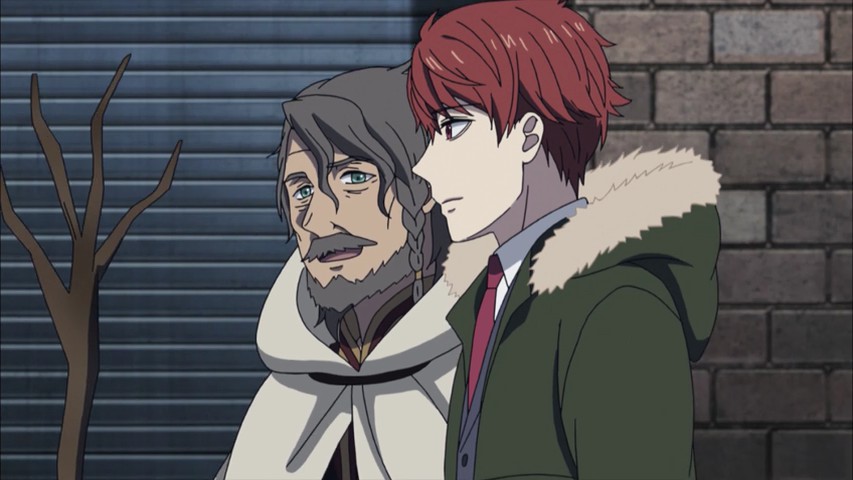
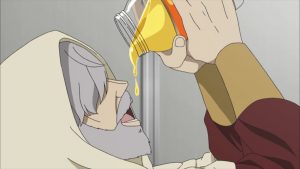


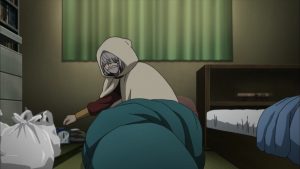
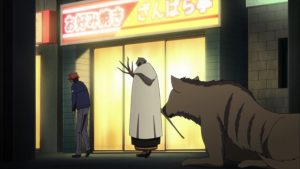


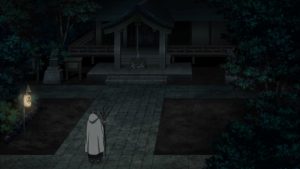
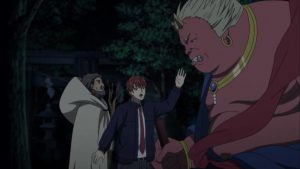




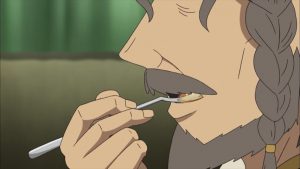


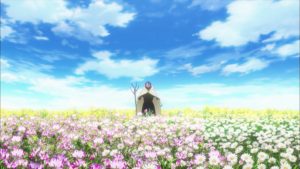

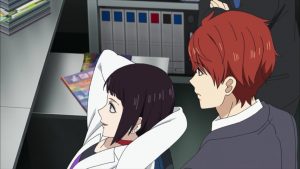

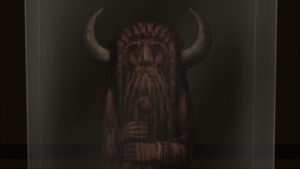



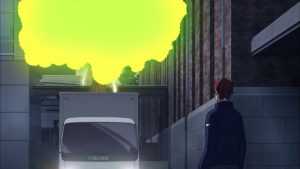

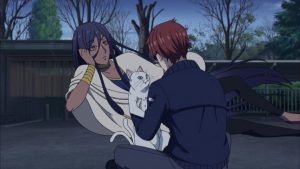
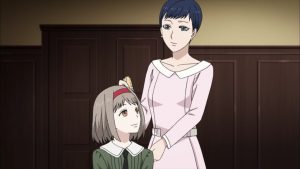






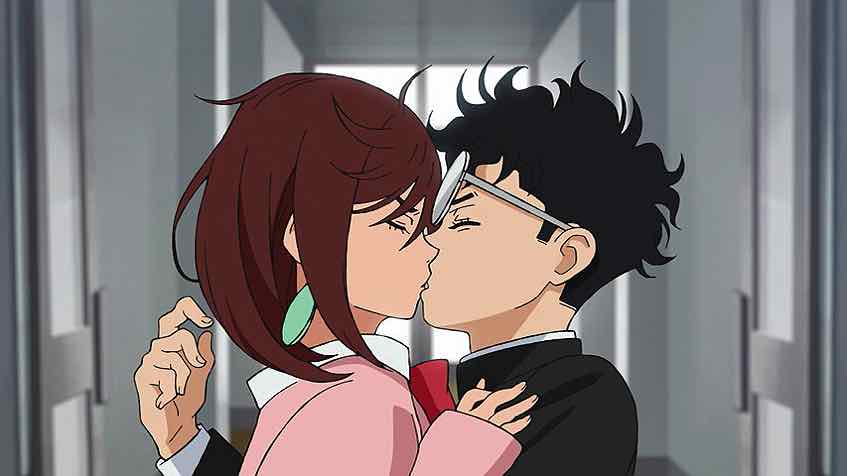
Gracie
June 24, 2019 at 9:27 pmLoved it. Cute how he’s basically living with Kohaku and the kitty. Too bad that there aren’t any available translations for the manga as far as I know.
animealex
June 25, 2019 at 2:50 amDito on all your points. This simple series was one of my “must-see” this season and besides the fact that it basically ends after introducing most of the cast, I saw no downside. Oh well, lets hope for some nice OVA’s.
JJ
June 25, 2019 at 3:16 amI’ll be honest – this would have completely passed me by if not for your thoughts. And I’m glad you pointed me in its direction.
Guardian Enzo
June 25, 2019 at 6:39 amThat’s why I do this, more or less. Thanks for letting me know.